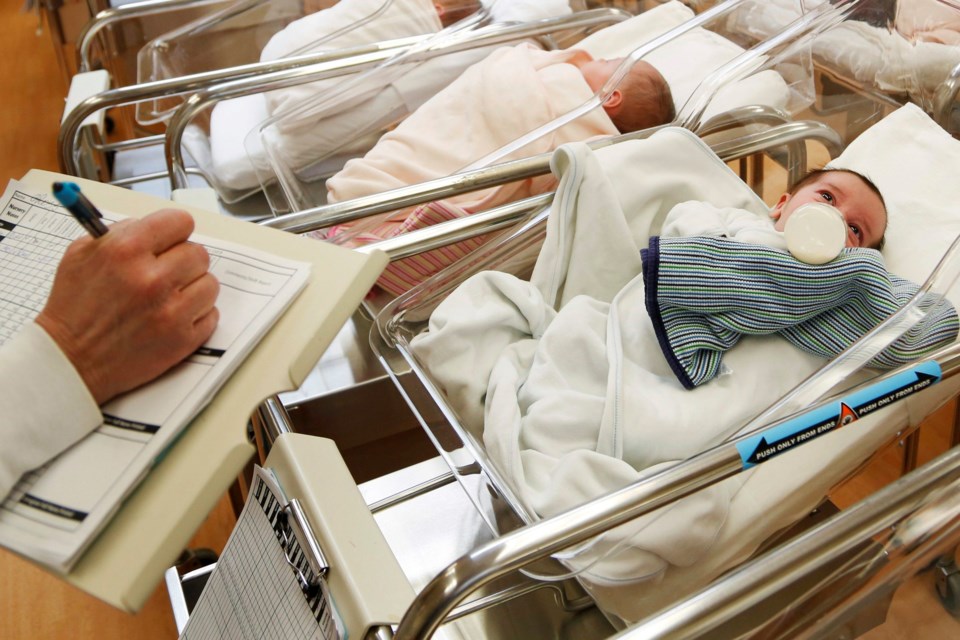NEW YORK — U.S. births continued to fall last year, leading to the fewest number of newborns in 35 years.
The decline is the latest sign of a prolonged national “baby bust” that's been going on for more than a decade. And some experts believe the coronavirus pandemic and its impact on the economy will suppress the numbers further.
"This unpredictable environment, and anxiety about the future, is going to make women think twice about having children,” said Dr. Denise Jamieson, chair of obstetrics and gynecology at Emory University.
The latest numbers were released Wednesday by the Centers for Disease Control and Prevention. The report, which is considered preliminary, is based on a review of more than 99% of birth certificates issued last year.
The CDC found the number of births fell about 1% from 2018, to about 3.7 million. Birth rates continued to fall for teen moms and for women in their 20s.
Aside from a one-year uptick in 2014, U.S. births have been falling every year since 2007, when a recession hit the country. The drop continued even after the economy rebounded.
Experts say there are a number of causes, but chief among them are shifting attitudes about motherhood: Many women and couples delay childbearing and have fewer kids once they start.
The economy is a factor, but not because of short-term cycles in hiring. Many jobs are low-paying and unstable, and that coupled with high rents and other factors have caused women and couples to be much more cautious about having kids, said Dr. John Santelli, a Columbia University professor of population and family health.
It's unclear what will happen to births this year, said Brady Hamilton, the CDC report's lead author. The impact of the last few months' events won't become clear in maternity wards until late this year or early next, he said.
Santelli said it's possible births will go up, at least among some groups. Access to birth control and abortion has become more difficult, and some homebound couples may find themselves with greater opportunity to conceive, he said.
But others say it's more likely births will plummet.
The idea that there will be a lot of “coronababies” is “widely perceived as a myth,” said Hans-Peter Kohler, a University of Pennsylvania fertility researcher.
The debate most demographers are having is not about whether there will be a decline, but whether it will be lasting, he said.
“The decline due to COVID-19 might be different given the extent and severity of the crisis, and the long-lasting uncertainty that is caused by it,” Kohler wrote in an email.
Other highlights from the CDC report:
— Birth rates fell last year for nearly all age groups up to 34 years old, but rose for women in their early 40s.
— The birth rate for 15– to 19-year-olds dropped 5% from 2019. It's fallen almost every year since 1991.
— The cesarean delivery rate dropped to under 32%.
— The percentage of infants born at less than 37 weeks of gestation inched up for the fifth year in a row, to more than 10%.
___
The Associated Press Health and Science Department receives support from the Howard Hughes Medical Institute’s Department of Science Education. The AP is solely responsible for all content.
Mike Stobbe, The Associated Press




